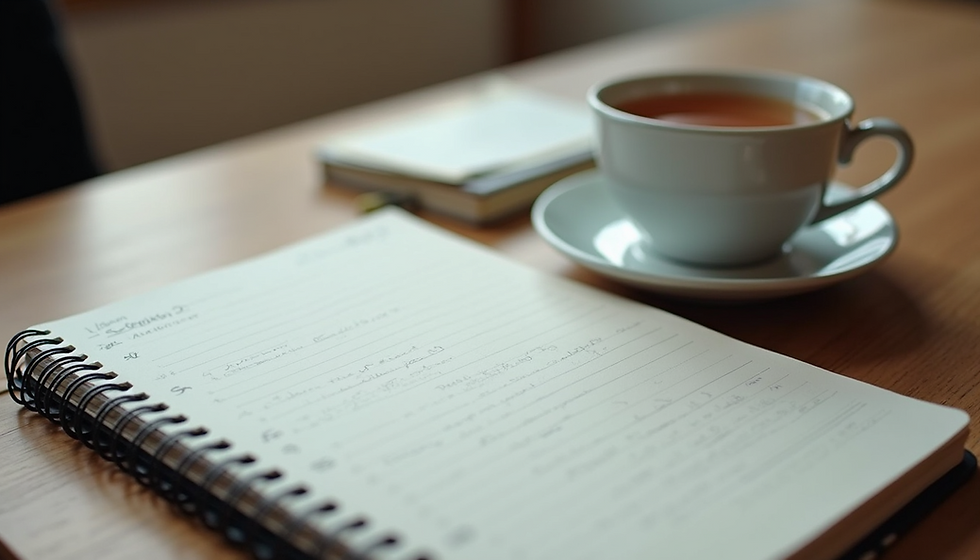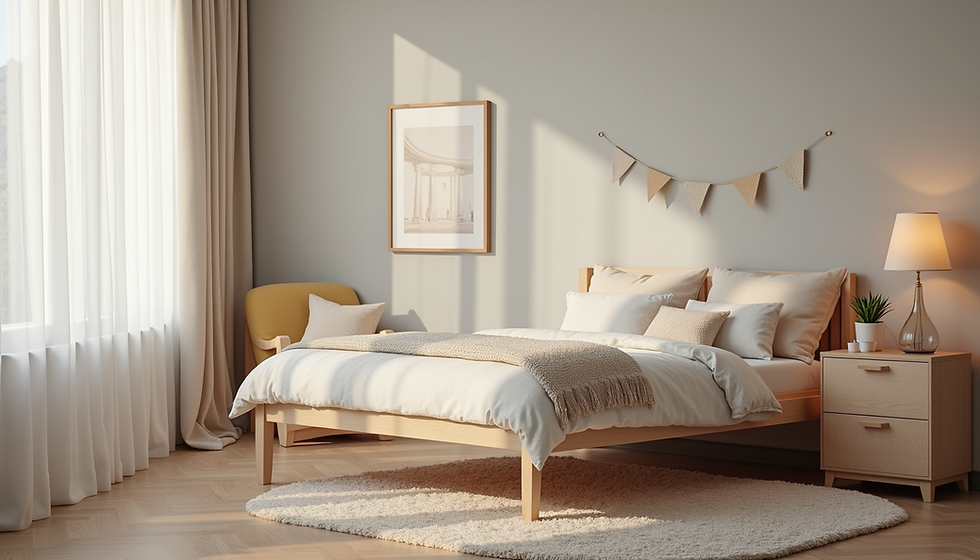How to Stay Organised and Maintain Your Wellbeing
- Jun 5, 2025
- 4 min read
Updated: Jun 16, 2025
Staying organised is not just about keeping a tidy workspace; it involves enhancing your overall wellbeing. In today’s fast-paced world, balancing personal and professional commitments can be challenging. However, effective organization can alleviate stress, improve productivity, and lead to a healthier lifestyle. In this article, we will explore various strategies to help you stay organized while maintaining your mental and physical health.
Organisation and Its Importance
Organisation is key to achieving clarity in your daily life. An organized approach allows you to manage your tasks efficiently and reduces the feeling of being overwhelmed. According to a study by Princeton University, clutter can actually make it difficult for your brain to focus on tasks. Consequently, a cluttered environment can lead to decreased productivity and increased stress levels.
To begin your journey toward better organisation, assess your current habits. Ask yourself:
Do you struggle to find important documents?
Is your workspace disorganised?
Do you often forget appointments or tasks?
By identifying these issues, you can develop tailored solutions that promote your wellbeing.

Tips for Maintaining Organisational Habits
Creating an organised life requires consistent effort. Here are some practical tips you can implement to improve your organisation:
1. Use a Planner or Digital Calendar
A planner, whether physical or digital, is a valuable tool for organising your tasks and appointments. Consider setting aside a few minutes each evening to plan the next day. Include:
Work-related tasks
Personal appointments
Time for relaxation and self-care
Digital tools like Google Calendar also allow you to set reminders and notifications, helping you stay on top of important commitments.
2. Declutter Regularly
Clutter can accumulate quickly. Make it a habit to declutter your space weekly. Dedicate time to sort through items and identify what you truly need. Here are a few methods you can use:
The KonMari Method: Keep only those items that “spark joy.”
One-in-One-out Rule: For every new item you bring into your home, remove one item.
By maintaining an organised space, you’ll create an environment conducive to productivity and relaxation.

3. Prioritise Your Tasks
Not all tasks hold the same level of importance. Prioritising your tasks can prevent you from feeling overwhelmed. One effective strategy is the Eisenhower Matrix. Divide your tasks into four categories:
Urgent and important
Important but not urgent
Urgent but not important
Neither urgent nor important
By focusing on important tasks first, you ensure that your energy is spent on what truly matters.
Balancing Personal and Professional Life
Achieving balance between work and personal life is essential for maintaining wellbeing. Many people struggle with setting boundaries, leading to burnout. Here are some effective strategies to help you strike that balance:
1. Set Clear Boundaries
Communicate your work hours clearly with co-workers and supervisors. Establish guidelines about when you are available via email or other communication tools. When work is done for the day, commit to switching off notifications to create mental space for personal activities.
2. Schedule Downtime
Just as you would schedule meetings or deadlines, schedule time for self-care. This could be engaging in a hobby, exercising, or simply relaxing. Make it a priority to respect this time; it will help you recharge and prevent burnout.

The Role of Mindfulness in Organisation
Incorporating mindfulness practices can enhance both your organisation and wellbeing. Mindfulness helps you stay present, reduces stress, and increases your attention span. Here are some ways to integrate mindfulness into your daily routine:
1. Practice Meditation
Even a few minutes of meditation can help clear your mind and improve focus. Use apps like Headspace or Calm to guide your practice. When your mind is clear, you’re more likely to make organised and thoughtful decisions.
2. Breathing Exercises
Throughout your day, take a few moments to practice deep breathing. Inhale deeply through your nose, hold for a few seconds, and exhale slowly through your mouth. This practice can reduce anxiety and allow you to refocus on your tasks.
By combining organisation with mindfulness, you create a harmonious environment that fosters productivity and emotional health.
Making Organisation a Lifestyle
Staying organised should not feel like a chore; instead, it can become a part of your lifestyle. Here are some actionable recommendations to help you maintain an organized and balanced life:
Create Routines: Establish daily and weekly routines that allow you to prioritise organisation. For instance, designate Sunday as your planning day for the upcoming week.
Limit Multi-tasking: Focus on one task at a time to improve both your efficiency and mental clarity. Studies have shown that multi-tasking can lead to mistakes and increase stress.
Use Technology Wisely: Leverage apps and tools that promote organisation. Tools like Trello or Asana can help you track your projects and daily tasks efficiently.
By embedding these habits into your daily life, you will foster a sense of control and well-being.
Embracing Lifestyle Changes for Better Wellbeing
Improving your organisation can significantly enhance your overall wellbeing. It may require some effort and adjustment, but the benefits are well worth it. Here are a few lifestyle changes you can consider:
Stay Hydrated: Drink enough water throughout the day. Dehydration can affect both mood and cognitive abilities.
Exercise Regularly: Aim for at least 30 minutes of exercise a day. The endorphins released will help reduce stress and improve your concentration.
Connect with Others: Spend time with family and friends who support and inspire you. Connection is vital for emotional health.
Incorporating these changes will not only make you more organissd but will also enrich your life in many meaningful ways.
By implementing these strategies, you can create a more organised lifestyle that leads to improved wellbeing. For additional insights and elaborations, you can explore some work-life balance tips.
Staying organised is an ongoing journey, but with patience and commitment, it can lead to a balanced and fulfilling life.













I use the 'one in one out' rule to manage my home. It really works. My house of well organised and clutter free.